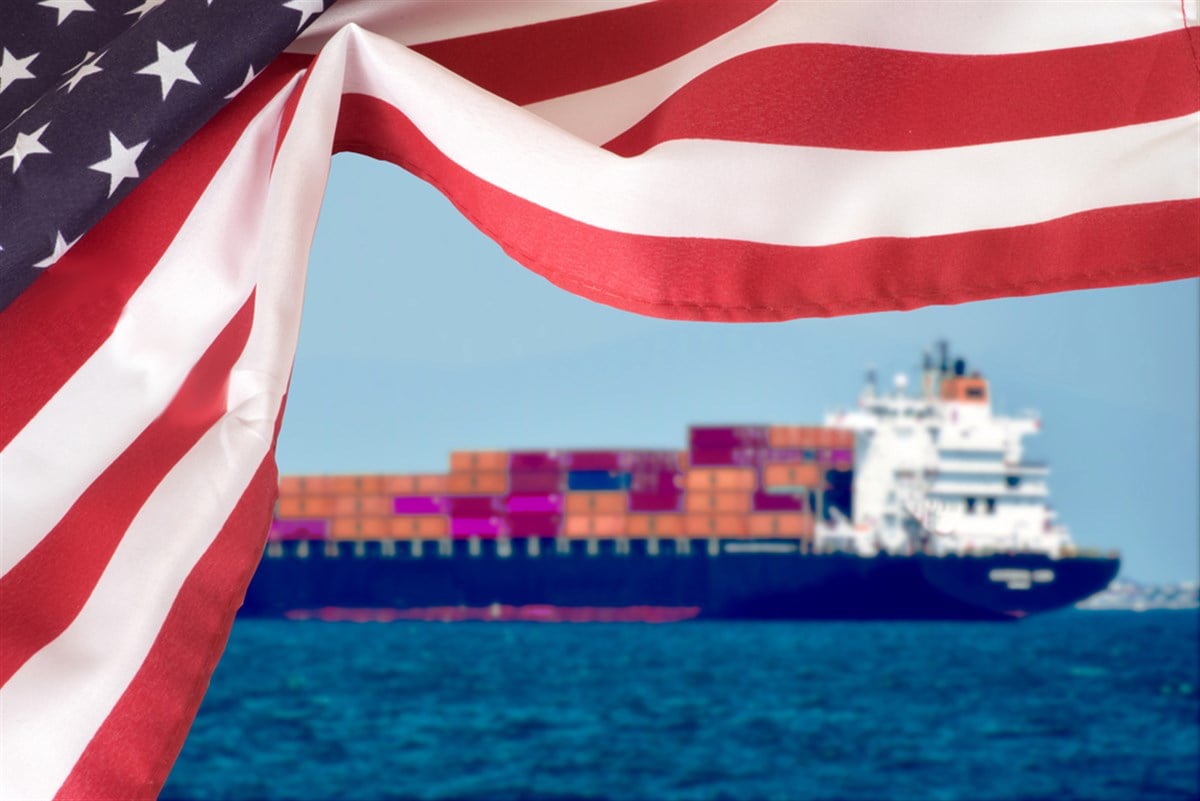
President-elect Donald Trump denied a report from the Washington Post that indicated he was planning to issue universal tariffs on critical imports, implying a pared-down tariff policy. Trump refuted the claims on his Truth Social platform, claiming the report was "fake news." Trump has stated his intent to levy 10% tariffs across the board and up to 60% tariffs for Chinese imports. He has previously stated his intent to levy 25% tariffs on imports from Mexico and Canada on day one. Tariffs are meant to protect the domestic production of U.S. goods. Here are two stocks that will gain from import tariffs.
Nucor: Protecting Domestic Steel Production
Charlotte, North Carolina-based Nucor Co. (NYSE: NUE) is a major domestic steel producer. Nucor’s stock was down 29% in 2024, severely underperforming the benchmark indices. The leader of the basic materials sector is the largest steel producer in the United States in terms of revenue.
Canada and Mexico Are the First and Third-Largest Exporters of Steel to the United States
Trump has stated his intent to levy 25% import tariffs on Canada and Mexico on day one of his second term. This would be a major boon to Nucor and domestic steel makers despite the lull in demand. Canada is the largest importer of steel to the United States at 19%, followed by Brazil at 18% and Mexico at 13% of total U.S. imports. This could divert more demand over to Nucor and improve their margins. Whether it is even possible to levy tariffs on day one is arguable, as Trump's 25% steel tariffs took nearly two years to implement during his first term.
Is It the Calm Before the Storm?
The markets haven't taken the potential tariffs seriously, as evidenced by the lull in prices. However, Nucor issued downside guidance on Dec 16, 2025, which has continued to put a ceiling on bounces. Nucor guided Q4 2024 EPS of 55 cents to 65 cents versus 89 cents consensus analyst estimates. The largest driver of lower earnings at the steel mills is the decreased volumes and lower average selling prices. However, the company expects earnings to improve in the second half of 2025.
Nucor Is Ready for the Recovery
The Apple Growth sheet mill factory in West Virginia was a $3 billion investment from Nucor to bolster capacity up to three million tons annually. The new mill has 1,700 acres to help the company supply steel products to the Northeast and Midwest regions.
In total, Nucor has invested over $6 billion since the COVID-19 pandemic to bolster its capacity with upgrades and acquisitions. Its electric arc furnace (EAF) technology is proven to be more efficient and environmentally friendly than traditional blast furnaces, like the ones used by United States Steel Co. (NYSE: X), which had its planned merger with Japan’s Nippon Steel blocked by the Biden administration.
Tesla: Making America EV Ready
The leading domestic electric vehicle (EV) manufacturer, Tesla Inc. (NASDAQ: TSLA), will continue to be a benefactor of import tariffs. Not only does it reduce competition from imported EVs, but it also makes their domestically manufactured EVs more price competitive. Tesla's investment in domestic battery production, like their Nevada Gigafactory, would also give them a cost advantage over imported battery products.
Of course, it doesn't hurt that Tesla CEO Elon Musk is part of Trump's inner circle and co-head of the Department of Government Efficiency (DOGE). Musk is also pushing for quicker regulatory approval of self-driving and autonomous vehicles (AV) to accelerate the launch of his Robotaxi network.
Potential Retaliation Is an Overhanging Threat
While Musk's close ties with Trump are a benefit to Tesla, they can also be a target in a tit-for-tat trade war, especially with China. Tesla generates around 20% of its revenues from China. China recently banned rare earth exports of germanium, gallium, and antimony to the United States on Dec 3, 2024, in retaliation to Biden's restrictions on semiconductor equipment products to China. Nothing is stopping them from taking action to hurt Tesla's China business. Other countries could also retaliate by levying higher tariffs on Tesla and U.S. vehicles, further leading to an escalation of trade wars.
